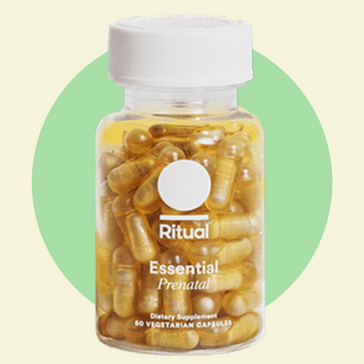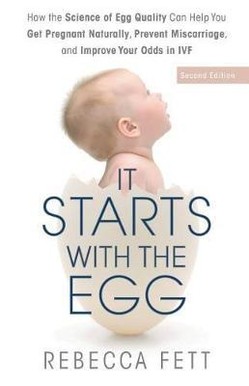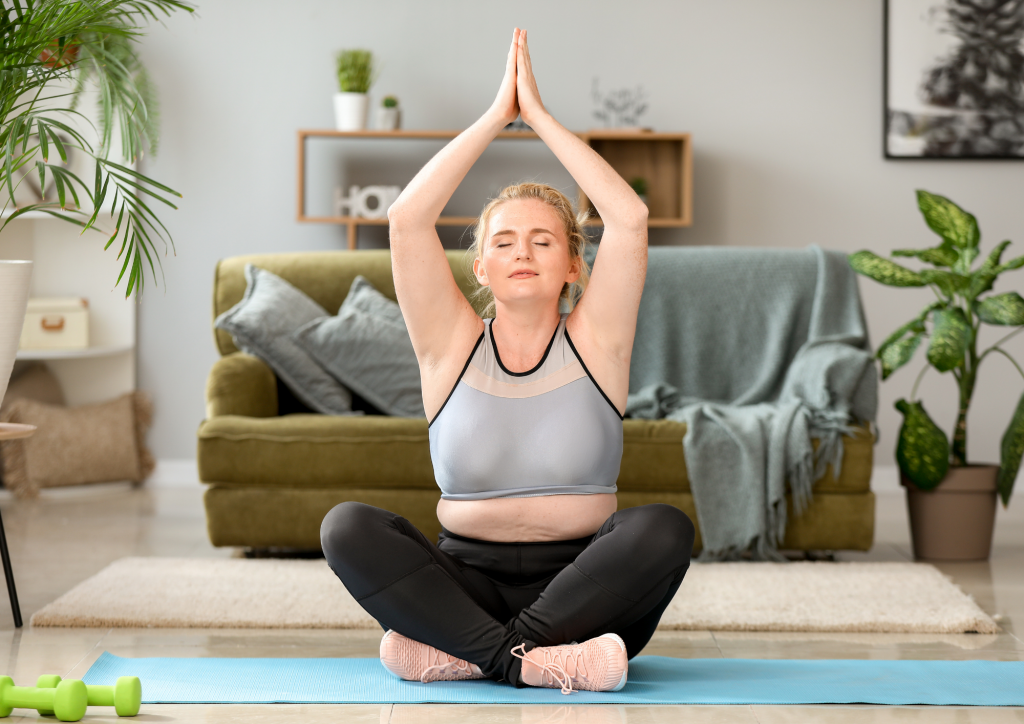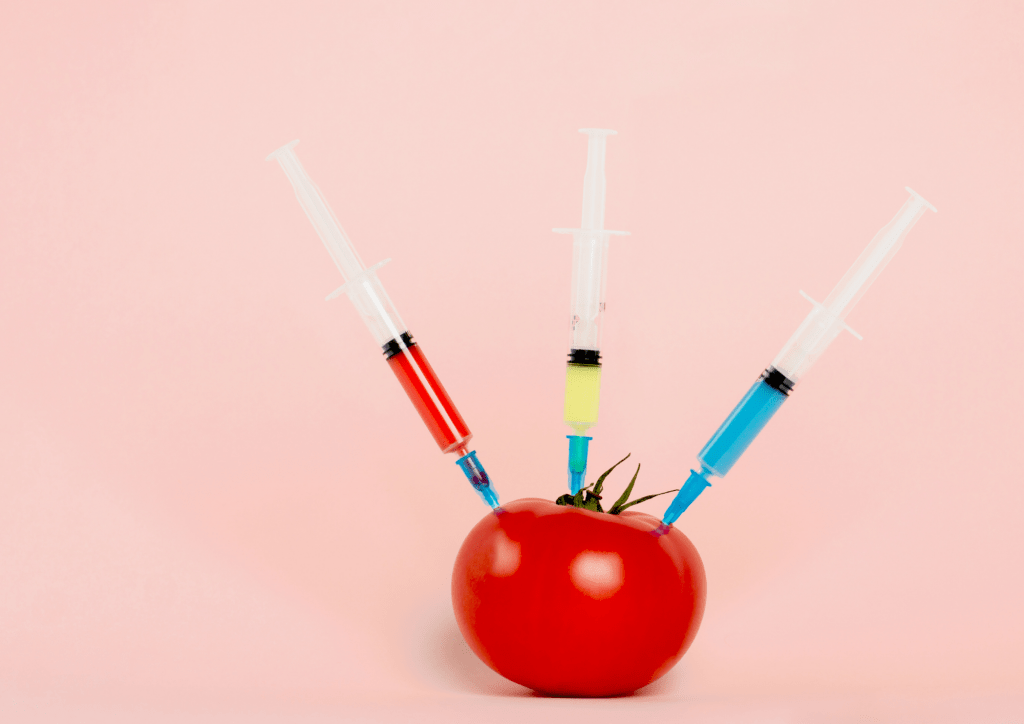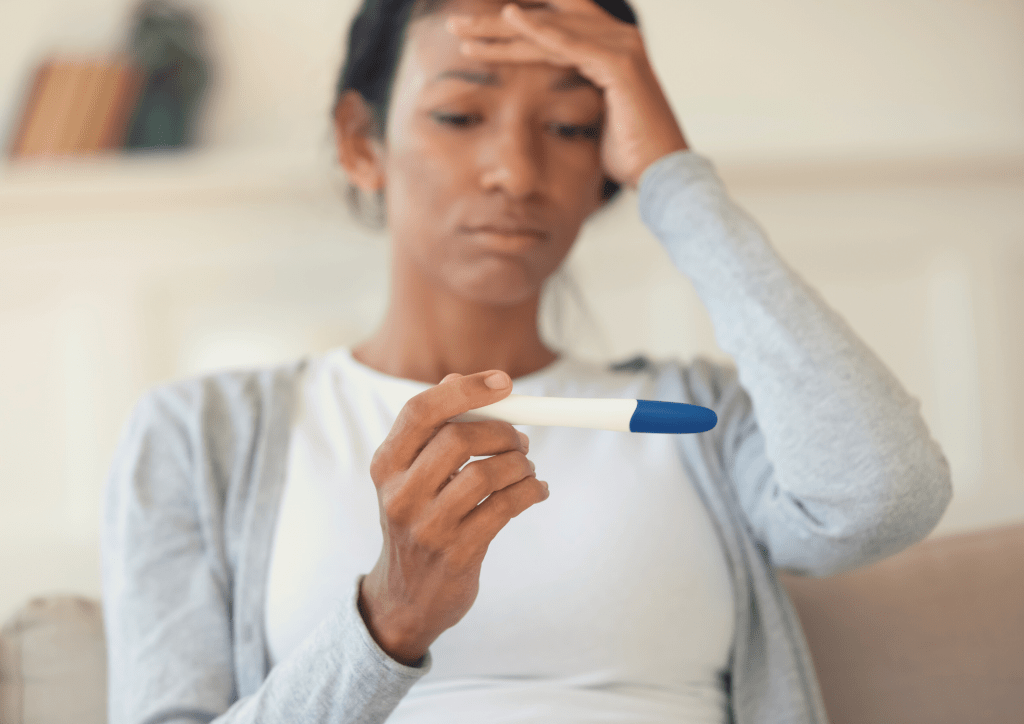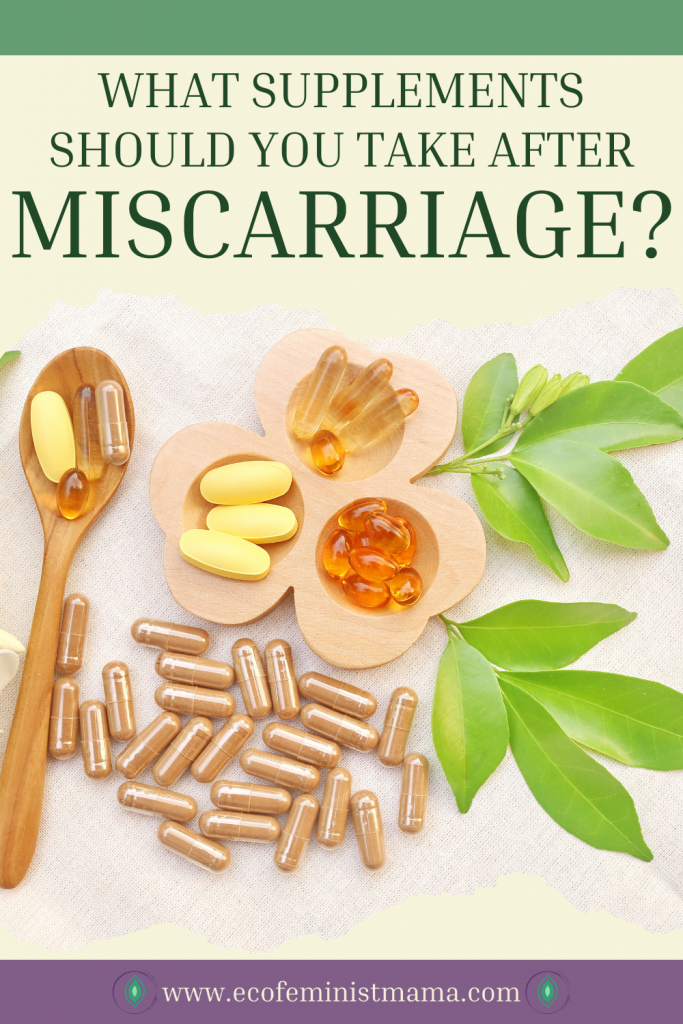Given you’re here searching for tips on getting pregnant after a miscarriage, I want to say I’m SO sorry for your loss. I’ve had two pregnancy losses myself and I feel your grief. I’m sorry you are having to endure it.
Even in the 21st Century, miscarriage is clouded in shame, secrecy and taboo. The famous “12 Week Rule”, where you hide your pregnancy for the first trimester “just in case” is the norm.
The problem, as you may have discovered, is what happens when “just in case” becomes your heartbreaking reality. For me, the pain of my pregnancy losses were made worse by the fact that I hadn’t shared the news with anyone. I do hope you are letting people in and getting the emotional support you need. It will make all the difference.
Anyway, you’re here because you want to find out about getting pregnant after a miscarriage. After my first miscarriage, I thankfully gave birth to a healthy baby who is soon to turn two, so I want you to know there is hope.
I got there by doing a truck-tonne of research into what causes miscarriage, as well as how to prevent it. I’d love to help support you by passing this knowledge onto you.
Let’s start with some of the most commonly asked questions about getting pregnant after a miscarriage.
Table of Contents
- Can you have a healthy pregnancy after a miscarriage?
- Can a miscarriage cause you to be infertile?
- How soon can you try for a baby after a miscarriage?
- Is getting pregnant after miscarriage easier?
- How long does getting pregnant after miscarriage take?
- Should you keep taking prenatal vitamins after a miscarriage?
- What other vitamins should I take after miscarriage?
- How can I get pregnant naturally after a miscarriage?
- How can I avoid miscarriage?
- What is pregnancy like after a miscarriage?
- Is it normal to have anxiety after a miscarriage?
- How can I stop worrying about pregnancy after miscarriage?
BABY! This is a reusable block, so whatever edits you make in it will apply everywhere it is used. If you want to remove this disclaimer from a post then be careful to delete the parent block (type ‘Reusable Block’ – icon is lego brick), and not to delete the group, image and/or the paragraph blocks (cos then they’ll be deleted from every instance of the reusable block).
Disclaimer: This post contains ethical affiliate links that I genuinely recommend. I may receive a small percentage of any purchases you make as a result of clicking those links. This comes at no extra cost to you and helps me to run this site. Read my full disclosure
Can you have a healthy pregnancy after a miscarriage?
Yes. You absolutely can and most women who miscarry do go on to have a healthy pregnancy. You are not at any additional risk of miscarriage if you’ve had 1 or 2 miscarriages already.
If you’ve had 3 or more miscarriages in a row, this is known as recurrent miscarriage. In this case it’s a good idea to start investigating the potential causes and seek medical support before trying to conceive again.
Can a miscarriage cause you to be infertile?
No, a miscarriage in and of itself won’t cause infertility. However, infertility can and frequently does cause miscarriage. Recurrent miscarriages are likely to be a sign that there are some underlying fertility issues at play. These issues can stem from either mother or father, but it’s important not to blame yourself for recurrent losses as they may have been caused by factors beyond your control.
How soon can you try for a baby after a miscarriage?
Physiologically, a healthy and fertile female can ovulate and conceive as soon as two weeks after a miscarriage is complete. That means you can start trying again as soon as you have physically recovered and feel emotionally ready. When that might be is different for everyone, of course.
In some cases there may be specific health issues that make it unwise to start trying to conceive straight away. You should therefore ask your healthcare provider if there is any reason not to immediately start trying to get pregnant again.
In the UK, doctors advise having at least one, preferably three menstrual periods before trying again. This has nothing to do with the safety of sex and conception after miscarriage. It’s just easier to conceive and estimate a due date when you have regular menstrual and ovulatory cycles.
Again, if you’ve had recurrent miscarriages, it’s even more important to have solid data about your cycles. This will help you and your healthcare team identify what issues there might be.
If you’re physically and emotionally ready, one of the first steps you should take is to start tracking your ovulation cycle like a hawk to maximise your chances of conception. As ovulation is so much harder to observe than menstruation, using a tool like OvuSense is a great idea.
OvuSense predicts your ovulation 24 hours in advance using information from your current cycle and confirms the exact date of ovulation with 99% accuracy. The OvuSense system is clinically proven to correctly identify up to 5 more days when you can get pregnant in every cycle than other devices, and it even works with PCOS.
You could save yourself up to 15 months of TTC (Trying To Conceive) time with OvuSense, reducing your chances of miscarriage in the meantime as your eggs won’t be ageing while you wait for the positive test. Check out the OvuSense website to learn more.
During January you can even get 20% off their best-selling OvuSense Advance Fertility Monitor with the code NY20 (expires 31st January 2024)
Is getting pregnant after miscarriage easier?
Women often find getting pregnant after miscarriage is much easier than before. This is usually because, while they were pregnant with the previous pregnancy, they were taking extra special care of their bodies.
Things like avoiding alcohol and caffeine consumption, taking prenatal and other supplements (see my pregnancy supplement guide), exercising regularly and being conscientious about food choices all support positive fertility. (Read more about this in my article on egg quality).
This is why I always say that the best thing you can do to get pregnant is to act as if you already ARE pregnant! I’ll tell you more about what this looked like for me and how it helped me to get and stay pregnant again after miscarriage (at age 40) later on.
How long does getting pregnant after miscarriage take?
This question is almost impossible to answer. As I mentioned earlier, theoretically you can ovulate and conceive as early as two weeks after your miscarriage is complete. However, your body may not ovulate in the very first cycle or, if it does, you may not successfully conceive in that first ovulation round.
An awful lot of things need to happen at exactly the right time in order to conceive. To be honest, the best thing you can do to support conception is to take care of both your physical and emotional state of being.
To give you some hope, though, I conceived naturally 5 months after my first miscarriage. That wasn’t even particularly intentional and we weren’t deliberately trying around the time of ovulation or anything. We were just living our lives and not trying to not get pregnant, if you know what I mean! If I’d been on a full-on baby-making mission I reckon it would easily have happened sooner.
Should you keep taking prenatal vitamins after a miscarriage?
Yes, you should absolutely keep taking your prenatal vitamins after a miscarriage if you want to conceive again.
Remember, prenatals are a multivitamin that has been specifically tailored to the fertility needs of women. It makes sense that, if you want to conceive again, you should be taking the best possible care of your body in expectation of getting pregnant. Prenatal vitamins will absolutely support that cause and should be a regular part of your general fertility strategy.
One thing I wish every woman knew is that an egg that (hopefully) becomes a little baby, starts to develop and mature between 3 and 4 months before it ovulates and gets fertilised. That means that absolutely everything you put into (and even on) your body for the 3-4 months before you hope to conceive has an impact on the viability of that egg.
This is why the “drink ’til it’s pink” saying (i.e. it’s “okay” to drink alcohol right up to when you have a positive pregnancy test) is SO damaging a myth. Again, you should be acting as if you’re already pregnant if you want to get pregnant again.
I have a whole article on the best supplements to take after a miscarriage, but if you’re looking for the best and highest-quality prenatal multivitamin then Ritual is my recommendation.
It’s non-GMO so completely free from harmful, fertility-destroying pesticides. It’s also suitable for vegans and vegetarians, and contains natural folate as opposed to synthetic folic acid. Many women also report reduced morning sickness with these, so that’s a bonus for when 🙏 you do conceive again.
What other vitamins should I take after miscarriage?
While it’s important to recognise that there is no “magic pill” to help you conceive and stay pregnant after a miscarriage, there are some supplements you can take to support your fertility. I go more in-depth into these in THIS ARTICLE.
Note that the supplements below can and should also be taken by the sperm provider as well, since low sperm quality will cause a miscarriage just as easily as low egg quality.
- CoQ10/Ubiquinol – 400mg per day, 200mg with breakfast and 200mg with lunch. Coenzyme Q10 occurs naturally in the body and is incredibly important for both egg and sperm quality, as it is an antioxidant that is crucial for healthy cell creation and repair. If your miscarriage had anything to do with low egg and/or sperm quality (very possible since most miscarriages occur due to the DNA of the embryo being damaged and unviable) then taking additional CoQ10 is a very good idea. Make sure you get ubiquinol rather than ubiquinone, for the same reason you should get folate supplements rather than folic acid (one is natural, one is synthetic and less well absorbed by the body.
- Alpha Lipoic Acid (ALA) – 400-600mg per day, or 200-300mg per day for R-Alpha Lipoic Acid, taken before any meal. This is an antioxidant that attacks cell-destroying free radicals in the body. Free radicals are created when the body turns food into energy and they also enter the body via alcohol, pollution, pesticides, smoking, fried foods and other toxins. Given that healthy cell creation is crucial to the growth and development of a healthy baby, you’ll want to both reduce your exposure to free radicals and take something like ALA to obliterate any of these pests.
- N-acetylcysteine (NAC) – up to 600mg any time of day. N-acetylcysteine is the supplement form of the naturally-occurring amino acid L-cysteine. It’s another antioxidant that helps prevent the build-up of free radicals.
- Vitamin E – 200iu taken any time. VitE supports reproductive health in general and couples who are undergoing IVF treatment are often advised to take it. Make sure you choose a brand that include mixed tocopherols, as opposed to only d-alpha tocopherol.
If you are concerned about your egg quality, I highly recommend reading the book It Starts With The Egg by Rebecca Fett.
It’s an incredibly in-depth and helpful look into the science of fertility and essential reading for anyone who wants to conceive and stay pregnant naturally.
It also has a section on pregnancy via IVF if that’s something you need to resort to.
How can I get pregnant naturally after a miscarriage?
Treating your body with deep respect and care is the best thing you can do to get pregnant naturally after a miscarriage. As I said earlier, acting as if you already are pregnant is by far the most powerful approach you can take. For me, after my April 2021 miscarriage this involved the following:
Eliminating alcohol & caffeine
These two toxins are absolutely the worst things you can be putting into your body if you want to get and stay pregnant with a healthy and viable embryo. Remember that an egg starts to mature 3-4 months before it is released for fertilisation so, even if you don’t plan to conceive straight away, it absolutely matters if you are putting these harmful toxins into your body now. That said, if you decide to switch to decaffeinated coffee do make sure it is organic. The chemicals used to remove caffeine from non-decaf coffee can be more harmful to your fertility the caffeine itself.
Getting fit, active & stopping overeating
It is well-documented that both exercise and weight loss help improve your fertility. I am, however, hugely anti-diet so I’m not here to say “get thee to Weight Watchers”. Diets cause the very problem the claim to solve and the best thing you can do for an overweight body is to work out why it is you are consuming more food than your body needs.
I highly recommend seeking the support of Leslie Hooper in this. Her Instagram account, podcast and coaching programme helped me drop four dress sizes in six months, all without dieting or in any way restricting what food I could eat. Seriously.
Even better, she and her co-coach Stephanie Miramontes helped me to overcome to emotional and psychological reasons why I was overeating, and heal my relationship with food and my body in the long term. As a mother to a daughter whom I want to raise with a food and body positive approach, this is HUGE and I cannot thank them enough.
Eliminating toxins from The home
There are several chemicals found in everyday items that could be destroying your fertility without you even knowing it. These include plastics (even BPA-free), phthalates, parabens, triclosan and pesticides, and they’re present in everything from your deodorant to your floor cleaner and hand sanitiser. Check out my article on how your beauty products could be destroying your fertility for more information.
Avoiding fertility-destroying foods
For me on a plant-based diet these included soya, peas and pea protein, white flour, refined sugar and processed foods.
If you eat animals and animal products, you should also avoid high-mercury fish like swordfish, tuna and seabass, processed meats and low-fat dairy products. Excessive dairy in general is a problem due to the synthetic hormones present so personally I’d recommend moving towards a whole foods, plant-based diet for the healthiest fertility diet.
You can learn more about whether vegan pregnancy is safe HERE.
Choosing organic foods where possible
Organic food is expensive as well as hard to source, so this may not be possible for all. However pesticides and GMO foods are extremely damaging to fertility so I’d encourage you to do what you can.
If nothing else, try to get away from the so-called “dirty dozen” and choose organic for those most-pesticide-ridden foods.
Prioritising sleep
This was difficult for me as I have a preschooler who doesn’t always sleep peacefully herself! I also work after she’s in bed so getting an early night was a challenge for me. However a lack of sleep can seriously mess with your hormonal balance.
Optimal hormonal health is crucial to fertility. If you want to get pregnant again naturally this is probably the cheapest and easiest thing you can do to help!
I have an in-depth article on how to get pregnant fast and naturally. You might also how to improve your egg quality by eliminating the toxic endocrine disruptors in your beauty products.
How can I avoid miscarriage?
Following my advice above and taking fertility-boosting supplements will give you the best possible chance of avoiding miscarriage. Don’t forget that both egg and sperm quality are impacted by the issues I’ve raised.
Sadly in some situations where there are specific fertility issues, you may not be able to avoid another miscarriage. You should always consult your healthcare provider if you are having multiple miscarriages.
What is pregnancy like after a miscarriage?
After my first loss, I searched for online support about getting pregnant after a miscarriage. There was plenty of advice about the physical side of things. However there was very little acknowledgement of the emotional side of having a ‘rainbow’ pregnancy.
This is just my experience, but having a baby after a loss was a VERY different pregnancy emotionally than my first baby. I was over the moon to see that positive pregnancy test with my daughter (b.2018), and again with the lost 2021 pregnancy. However, when I saw that pink line again having been through a traumatic miscarriage, I was terrified.
I was suddenly very conscious of the fragility of pregnancy. Ultimately, no pregnancy or baby is ever truly safe from unexpected tragedy but with my first baby, none of that really entered my mind. With my son (b.2022), whenever I went to the toilet, part of me was preparing for the beginning of a loss.
I was also much more cautious about what I consumed in my rainbow pregnancy and avoided absolutely anything associated with miscarriage. I was almost obsessively hyper-vigilant on all fronts and continued to use only all-natural health, beauty and household products up to the birth and even beyond.
Sadly I also found it more difficult to connect with my baby and get excited about his arrival as I never quite believed that I would end up with a healthy baby in my arms. The fact that I did still seems like a miracle to me, and really, all birth IS miraculous. I am happy to report that my beautiful boy was born perfectly safely and well, in my home, and is now a thriving, happy little toddler.
Is it normal to have anxiety after a miscarriage?
Of course! A miscarriage is a heartbreaking event, not to mention an experience that has a deep impact on your nervous system. Ultimately you have experienced a trauma. It’s absolutely normal to feel scared, anxious, nervous or psychologically distressed after any traumatic event.
If you’re feeling nervous and anxious after a miscarriage, don’t hesitate to reach out to your healthcare provider.
You may also benefit more from approaching bodywork professionals for physical trauma recovery. These might include osteopaths, acupuncturists or shiatsu practitioners. Emotional Freedom Technique (EFT or “Tapping”) may also be beneficial.
How can I stop worrying about pregnancy after miscarriage?
I wish I could wave a magic wand and take away all your fears and anxieties about your rainbow pregnancy. Sadly no-one can undo the past and the tragedy of your miscarriage/s will always live within you somewhere.
I think the first step you can take is to acknowledge and allow your grief over this loss. Don’t try to “fix” or “overcome” it. Miscarriage is awful, unfair, heartbreaking, and as real a loss as any death of a loved one. It’s important that you allow space for your grief. Recognise it as an inevitable aspect of living a life of love. Author Megan Devine writes beautifully on this in her book on loss, It’s Ok That You’re Not Ok.
Following on from that acceptance, here are a few tips for going forward in your pregnancy journey:
- Take one day at a time It’s okay if you feel fine one day and desperately sad the next. Living with life after loss is not a linear journey.
- Write down your thoughts and feelings I recommend a brain dump of unfiltered thoughts first thing in the morning. This will get out all the repetitive and sometimes taboo thoughts that often come with anxiety. Then you can hopefully move forward into your day with a clearer mind.
- Make time for relaxation techniques These don’t have to take very long or be very complicated. Just 5 minutes a day of dedicated relaxation can make a huge difference to your anxiety levels. You can even be efficient and simply use hypnobirthing techniques, which will serve you well throughout your labour. I highly recommend Katherine Graves’ online hypnobirthing course as a comprehensive and affordable option for learning hypnobirthing.
- Take care of your body Prioritise high quality nutrition, regular exercise, hydration and plenty of sleep. A happy, well-rested and well cared-for body will support a more relaxed mindset.
- Let people in This is something I personally find really difficult. It really is important to try not to take on the burden of these emotions alone. Speak to your partner, friends, close family or healthcare professionals. Allow them to provide you with the support and care you need.
So that’s it. I hope you found something helpful and positive in my guide to getting pregnant after a miscarriage. Once again, I am so sorry for your loss and I wish you all the best in your ongoing pregnancy journey.
